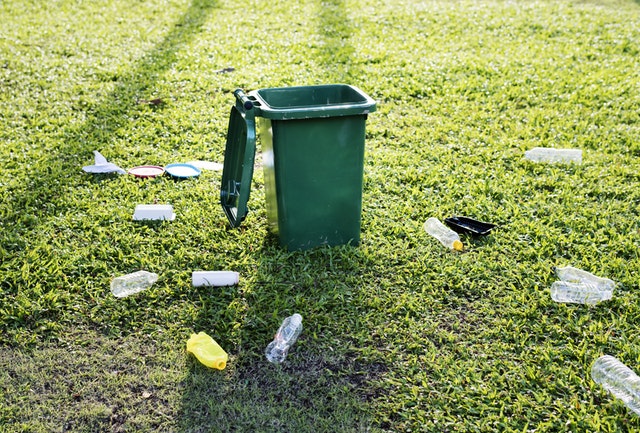Plastic is plastic, right?

If it’s plastic, you can recycle it, right? Not exactly. In fact, there are certain types of plastic that have never been recyclable. Do you know what your city will recycle and what it will still send to the landfill? Would knowing your favorite product is packaged in a plastic bottle that won’t be recycled influence your decision to buy it? Why are we talking about plastic, and why now? The way the plastic you put in your recycling bin is being handled by your city is likely changing.
It’s all about the numbers; #1-#7
If you’ve never flipped over a plastic water bottle, or your laundry detergent container, you probably haven’t noticed a number on the bottom or side of the item. Next time you’re drinking out of a water bottle, look at the bottom or side of the bottle, it likely has a #1 on it. Plastic that has #1 on it is the most desirable type of plastic for a recycler. Why? That #1 is indicating that plastic is PET or polyethylene terephthalate and a safe option for storing water and food. According to ThoughtCo.com, the average household produces 42 pounds of PET plastic each year that will go on to be recycled. Those PET bottles will go on to become carpet or fabric for synthetic clothing.
According to this CNBC.com article, Coca-Cola sources just 7% of its plastic from recycled materials. If you want to know what all the numbers on your plastic are telling you, visit this chart from National Geographic that explains what the numbers on your plastic mean.
Do I HAVE to rinse out my plastic containers before I recycle them?
Yes. Contamination from leftover food product in containers lands them in the “dirty” recycling category. As Minneapolis/ St. Paul Magazine cited in an article called, “Garbage In, Garbage Out” earlier this month, “Earlier this year, China- long the principal foreign customer for American recyclables- ceased virtually all imports of “foreign garbage.” So what does this mean for U.S. recycling markets? Without China buying it, or taking it, there are a lot of items that might have previously been recycled, but are now ending up in the landfill. Some recyclers are hanging on to their product in hopes the market will recover, but without China buying what they used to, it drives the need for all of us to be more mindful of what we’re putting in our recycling bin.
That battery has a plastic coating, can’t I recycle it?
Just because that battery has a plastic coating, doesn’t mean you should throw it in your recycling bin. In fact, according to Bill Keegan, chair of the Minnesota chapter of the National Waste and Recycling Association, “Nationwide, we’re losing about one facility a month from lithium battery fires.” When sorting equipment in a recycling facility comes across a battery, when crushed, they are explosive. If a mountain of paper or other flammable materials are close to that battery explosion, it’s easy to understand how facilities are being lost. If you do have batteries you want to recycle, locally, Batteries Plus Bulbs will take your spent batteries and lightbulbs.
No one really knows if or when the recycling market will return to the days when there was a market for most types of plastic, and recyclers could actually get paid for your plastic. We’ll keep you updated. We know that we aren’t in the business of recycling plastic coming from your home (residential plastic), but we want you to know how the landscape of the recycling industry is changing and how it can affect your choices about the items you’re putting in your recycling bin. As the markets change and tough decisions are being made, we’re committed to providing information and guidance to help you determine the best solution for you.
